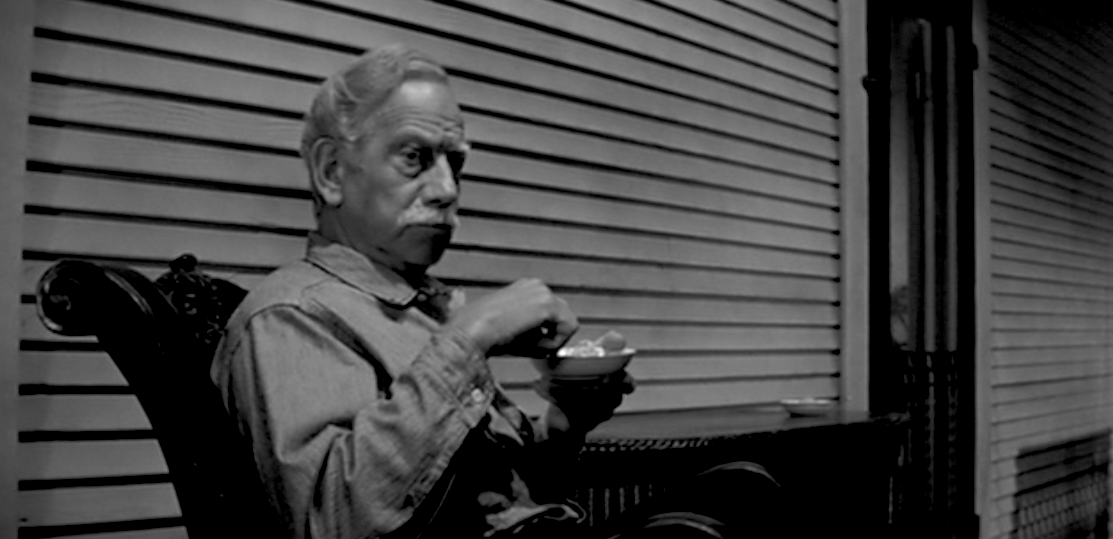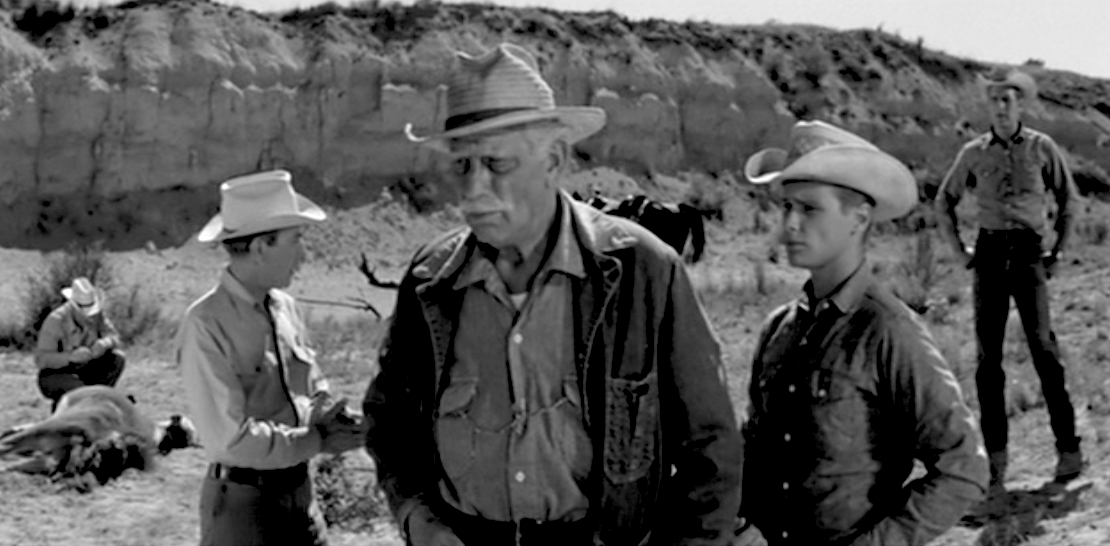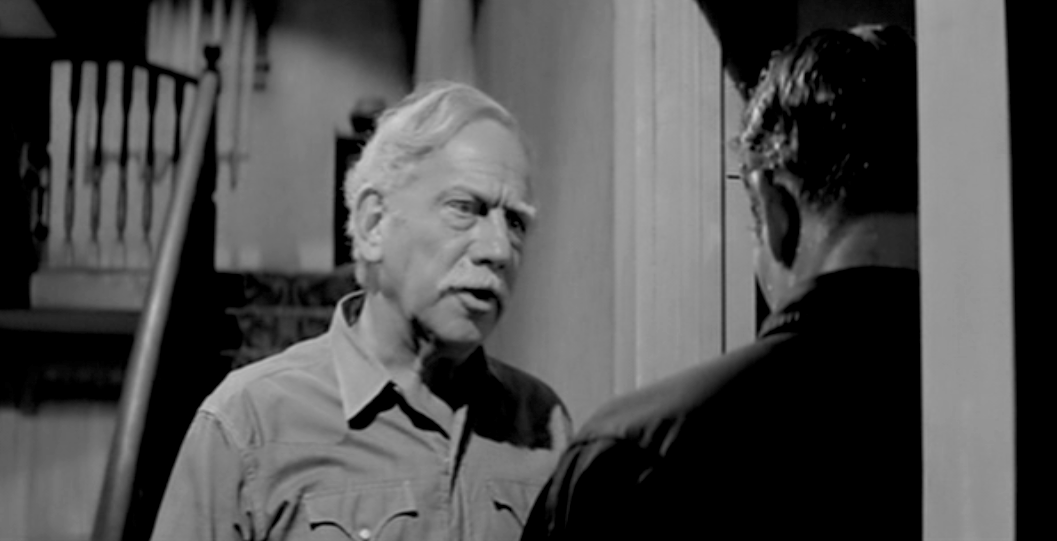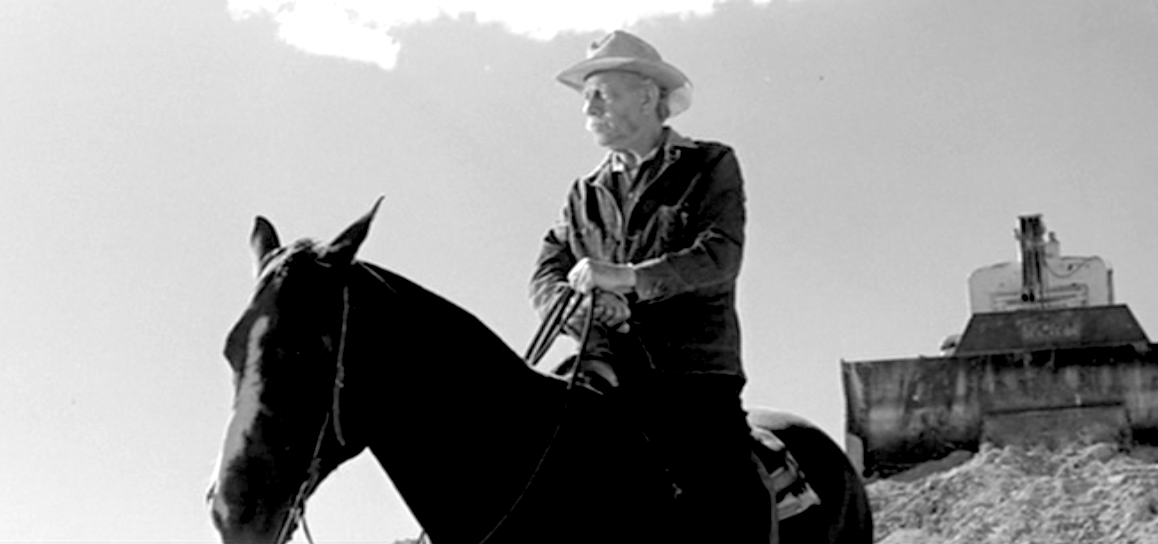Best Supporting Actor 1963: Melvyn Douglas in "Hud"
 Wednesday, August 9, 2017 at 3:30PM
Wednesday, August 9, 2017 at 3:30PM The Film Experience is taking a brief trip to 1963 for the forthcoming Smackdown. That year's supporting Actor winner was Melvyn Douglas in Hud...

by John Guerin
Paul Newman as Hud makes me forget everything else. All my attention is funneled into those blue-grey eyes, the nucleus of Newman's swaggering energy. Hud emerges from this drowsy Midwestern tapestry like a geyser springing up from a desert. Why look anywhere else? The film hardly forfeits narrative or photographic attention from Hud, but he's not the only performer doing expert work in Martin Ritt’s 1963 masterwork. There's Patricia Neal's Alma, an iconic intersection of Southern exhaustion and eroticism. There's also Melvyn Douglas' Homer, which, to my constant surprise, remains perhaps the films best performance...
In this land of dusty roads, languid bodies, lonely nights, and scorching sun, Ritt holds a memorial for the American Midwest, stuck in a perpetual morning-after. Hud is done with this tired life, with his nagging father, with fulfilling expectations, with asking before taking. Hud is too wild, too alive for this deadbeat town, and his father comes to symbolize the stifling past, weighing down heavily on his present.

Melvyn Douglas gives the type of supporting performance that pivotally changes the entire tenor of a film, think Claude Rains in Notorious or Robert Forster in Jackie Brown. If you manage to break free from Newman's orbit, Douglas carefully recasts Hud's erotic drifter as reckless narcissist. Hud becomes the tragedy of a man losing everything to forces beyond his control, at the complete end of his rope with no one there to come rescue.
I'm shocked at my sympathizing with such a "conservative patriarch" over his much more rebellious son, but Douglas' performance quickly dispels any trappings of the archetype. In 1963, audiences probably read Homer's decency as quaint and exasperating, but Douglas refuses to be the unyielding foil to Newman's carefree drifter. His commitment to doing the right thing, even at his own personal expense, obeying the government for the greater good, and upholding basic ethical standards (like not selling diseased cows to your neighbors) seems almost antique now, but stems outward from Homer’s timeworn benevolence rather than outward from his stern demeanor. Homer is not the film’s domineering villain, ruefully punishing Hud for his own folly. He enjoys his simple pleasures – peach ice cream and taking his grandkid Lonnie to the movies – but can prioritize work before play, and knows one procures the other. He reminds us that caring about something, taking pride in one’s work, and privileging people over profit are indeed virtues Hud’s generation tries to forget.

"You don't care about people, Hud," Homer tells his son after a long, boozy night that culminates in Lonnie getting into a barroom brawl. Douglas' velvety voice conveys a wealth of history and a deeply saddened present, and as much as we’d like to push this patriarch aside, we know Homer is right, Hud does only care about himself. Instead of being the raging bull that pushes Hud off to his sordid affairs, Douglas becomes the frail man teetering on his own precarious edge, soon to be pushed off. His decision to kill the cattle is devastating, but Douglas negotiates this crucial moment with his usual forthright wisdom that killing the cattle becomes a painfully logical conclusion. Watching his cattle buried, longhorn bulls shot, and farmland become barren feels like watching a man attend his own funeral.
There are no frills to Douglas’s Homer. In his starched yet unshowy performance, Douglas conjures up an entire era and milieu that still feels specific to this one man. Homer is at once gloomy and pragmatic, resolved and humiliated, a cowboy completely at home on his range, even when those dusty winds come rolling through to take him with them.




Reader Comments (10)
Great write-up, John! I watched Hud for the first time very recently, and I really enjoyed it. I loved all 4 main cast members' performances, with Patricia Neal being my MVP. How it missed Best Picture in a rather weak year is beyond me.
Wonderful writeup. I saw HUD for the first time only last year, and was totally blown away by it. The entire cast was aces. And yeah, charismatic as Newman was, I found myself sympathizing so much more with Douglas' character.
And yes, the fact that the film wasn't nominated for Best Pic is a frickin' travesty.
Nice recap. Melvyn Douglas was completely deserving of the win, not just against the four other competitors in the category-some of whom were weak entries to begin with-but any other supporting actor performance this year. He truly was the best.
I need to see Hud again. I enjoyed it the first time (about five years ago) but want to take it in again. I remember thinking that Melvyn Douglas was very good. All four main actors are great. Newman at his most rascally, Brandon de Wilde at his cutest, and Patricia Neal deservedly winning a lead Oscar for little screen time but unforgettable impact.
This is a really beautiful and thoughtful post. I love Paul Newman but have never seen "Hud," and now I'll seek it out for Melvyn Douglas, who I've only seen in "Ninotchka." Thanks!
God I haven't seen this in two years and the whole film just flooded back to me. This is a lovely piece of writing, thank you John!
Great movie. Newman should have received Best Actor
Neal should have been in and won Best Sipporting Actress not BActress.
The movie was Best Picture even though not nominated.
I appreciate this article but I have to say the thing I love most about Hud is Patricia Neal.
The entire cast is superb, but Douglas is indeed unique in his presence, his bearing, his steadiness. There is a lifetime of melancholy in those eyes.
One of my favorite performances ever. It totally deserves a tribute like this.